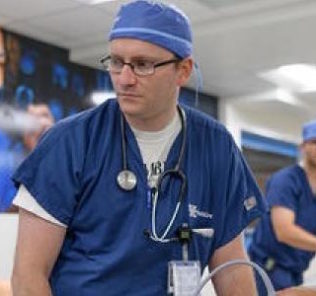How to Advance Your Career in Clinical Simulation Education
Once established as an educator in a healthcare simulation, there are many skills to learn. In fact, the role of a healthcare simulation educator is one where a lifelong learner mindset is required that spans a career in this field of work. Beyond certification, this article by Erin Carn-Bennett, RN, MSN, will explore how to take the role of a clinical simulation educator to the next level.
Start with Mentorship for Career Development
Mentorship for career development through a mentor or professional supervisor can be incredibly helpful and useful for all in healthcare, particularly in more senior roles such as a clinical simulation educator. A mentor can assist with guidance around career and skill advancement. As debriefers, clinical simulation educators are aware of the power of conversation when done well. A mentor, particularly if external to the clinical simulation program or even the organization employed, can provide new insights into self-development.
Sponsored Content:
Plan for Professional Development: The Gold Standard
Professional development is incredibly important in the role of a clinical simulation educator. Initially, the role may require a large amount of professional development that occurs as the organization’s model of clinical simulation is taught to new staff members. However, once an established clinical simulation educator, more plans may be needed to progress and maintain the desired career paths. Clinical simulation staff roles are generally highly innovative and creative career paths with many new developments every year to stay current.
Professional development for clinical simulation educators is available via numerous modalities. Local and international conferences like the International Nursing Association for Clinical Simulation and Learning (INACSL), or the Gathering of Healthcare Simulation Technology Specialists (SimGHOSTS) provide an incredible resource of clinical simulation community, support, inspiration, and resources. INACSL has a dedicated standard focused on professional development which is a must read complimentary resource which can easily be forwarded to healthcare administrators to demonstrate need. See the HealthySimulation.com media patners page to learn more about leading organizations around the world.
Organizing regional meetings with other medical simulation champions in your state or territory is an excellent way to network and learn from those closest in proximity. And of course, beyond the thousands of articles and webinars on HealthySimulation.com, there are also a plethora of amazing books that can also help clinical simulation champions to better understand their craft. Start with the book Comprehensive Healthcare Simulation: Operations, Technology, and Innovative Practice to understand the operational frameworks necessary to effectively deploy simulation technologies and find other great simulation in healthcare books.
Sponsored Content:
Of course, in-person or online courses, like those available online from WISER or the HealthySimulation.com LEARN CE/CME platform, which relate to specific skills to advance within clinical simulation education are available either online or in person globally. Career planning annually alongside a line manager in the organization is incredibly useful to match desired courses and conferences in order to advance skill sets. If utilizing a mentor or professional supervisor, their skills can be used to assist with this process as well.
Complementary Roles of the Clinical Simulation Educator
Consider other complementary roles that may be taken on alongside the clinical simulation educator role to both advance and complement skill sets and add depth to experience in the healthcare simulation realm. These may be in roles that relate to the clinical simulation space, such as: within the development of technology for healthcare simulation space, writing about healthcare simulation in a range of areas, or utilizing debrief skills in other spaces, such as for post real-life critical events for either healthcare staff or members of the public involved.
Growth Mindset Approach for the Clinical Simulation Educator
A growth mindset instead of a fixed mindset can be incredibly helpful to advance the established clinical simulation educator role. Learn from mistakes and see them as an opportunity to learn. Share resources regularly with team members and seek other clinical simulation staff to also learn about skill sets outside of clinical simulation that will complement and advance the team overall to the next level.
View the HealthySimulation.com LEARN CE/CME Platform Webinar How Can Clinical Simulation Promote Growth Mindset Over Fixed Mindset? to learn more!
Leadership, Emotional Intelligence and Volunteering
Emotional intelligence is a critically important skill to translate into the healthcare simulation educator role. Emotional Intelligence is the ability to manage emotions and also understand the emotions of others. There are five key elements to emotional intelligence which include: self-awareness, self-regulation, motivation, empathy, and social skills. Knowledge of emotional intelligence and use within the clinical simulation educator role is essential. Emotional intelligence skills will enable a more successful debriefer and also a connection with those who attend clinical simulation scenarios. The ability to display these skills will also influence and inspire others to role model the same behaviors within the clinical simulation and also translate this to real-life clinical care.
Leadership skills are incredibly important as a clinical simulation educator, even when one is not in a leadership position in the program. Anyone can be a leader, even if not within a leadership role. Informal leadership is noticed when the educator is perceived as a leader by peers and students based on their reputation and influence within the organization. Role modeling of leadership skills will assist to keep professionalism at a high level within the clinical simulation program. Leadership skills to include and infuse into the clinical simulation educator role are: communication, motivation, feedback, creativity, and positivity.
One strategy to promote and display leadership and advanced skills as a clinical simulation educator is to take on additional projects that are of passion and relevance to the clinical simulation educator role. Whether the need be to support an upcoming journal publication research project, innovative technology purchase planning, faculty buy-in open house events, policy development, accreditation review, or anything else related to the expansion of a clinical simulation program – those that take initiative will be seen as “champions” of simulation for administration at your institution.
However, be cautious, as too many projects on the go at once can be detrimental to the clinical simulation program. There is more merit in agreement to two passion projects at a time and completion of these to a high standard rather than agreement to too many projects and not completing any or with minimum quality. Additional projects may include: research of new technology or clinical simulation equipment, expansion of the clinical simulation project into new areas, or development of a new curriculum, to name a few.
As experience and confidence are gathered within the clinical simulation educator role, there may be the opportunity to potentially lead and roll out new projects that relate to the clinical simulation program. These can be a great opportunity to expand leadership and negotiation skills where relevant. These skills are useful in all environments and will add depth to clinical simulation-based skills. The opportunity to lead new projects will also expand networks and connections throughout the organization, which is always helpful as a clinical simulation program.
Expansion of Current Clinical Simulation Educator Role
Awareness of the clinical simulation educator job description in the organization is essential to know about expectations within the role. At annual appraisals or at least annually, re-read contracts to review the job description alongside what is completed in the clinical simulation educator role daily. Review these alongside management as appropriate and make suggestions in regard to potential role expansion and pivot opportunities.
This article has explored how to take the role of an established clinical simulation educator to the next level. As established clinical simulation educators, there is often a drop off of educational opportunities. Maintenance and expansion of professional development for clinical simulation educators is vital for job satisfaction and feeling valued within clinical simulation educator roles. As advancement occurs within clinical simulation educator roles, a plethora of new skills are often obtained and harnessed. Being intentional in the process can be hugely beneficial not only to the clinical simulation educator but also to the clinical simulation program the individual is employed.
Learn More About Healthcare Simulation Educators!
Erin Carn-Bennett is a Simulation Nurse Educator for the Douglas Starship Simulation Programme in Auckland, New Zealand. Carn-Bennett has her Masters of Nursing and has an extensive nursing career within pediatric emergency and also nursing management. She is passionate about debriefing and all things simulation. Carn-Bennett is a member of the IPSS board of directors. Carn-Bennett is the lead host of the podcast Sim Nurse NZ.
Sponsored Content:

















